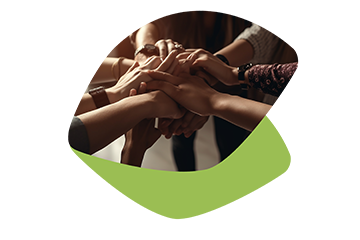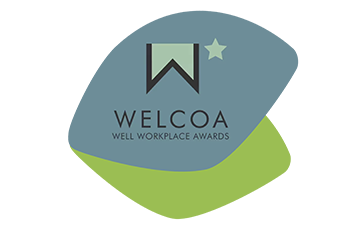Low-Waste Lifestyle: An Earth Day Story


Reducing Your Waste and Footprint
“All things are bound together. All things connect. Whatever happens to the Earth happens to the children of the Earth. Man did not weave the web of life, he is merely a strand in it. Whatever he does to the web, he does to himself.”
— Chief Seattle
We’ve all seen the recent reports on climate change and what is predicted to happen to the world if we don’t intervene. We have all seen an image or video of some habitat or creature impacted by climate change and increasing pollution problems. Perhaps it was a turtle with a straw stuck up its nose, fields of forests being cut to the ground, a starving polar bear, or melting glaciers. We might have been filled with brief sadness or thought, “Aw, what a shame!” but then carried on with our day.
It is so easy for us to recognize a global problem such as this and mistakenly think it is up to someone else to fix it. It’s easy to turn a blind eye and think you may not have the power to make an impact, but you do. We each have just as much power as politicians, big-business CEOs, influencers, and celebrities to make our home planet cleaner and greener. I recognized and tapped into that power just a few years ago!
I first heard about the “zero waste” concept in college when a classmate made a huge lifestyle overhaul and pledged to keep every bit of waste she created in a 16oz mason jar. A year later, her waste only filled a quarter of that jar.
I was impressed by her efforts and intrigued by this small but growing community of zero wasters, yet skeptical of her impact. It sounded great in theory – reduce your waste to help the environment! But it seemed so complex, time-consuming, expensive, and overall just so not fun. I assumed that those living that lifestyle surely had to sacrifice so many of the everyday conveniences and joys our society has gotten used to.
I started doing more research and followed a few blogs/Instagram accounts of these zero-waste gurus. They all posted tips and tricks on transitioning to a low-waste lifestyle, and I realized that it wasn’t that hard - it just took a definite desire to change, some planning, and some self-discipline.
Despite feeling like I was always at least somewhat attuned to the necessity for environmental responsibility, researching the state of the pollution/plastic problem the world faces was a huge eye-opener. It kicked me into gear toward lessening my footprint. For example:
- According to the EPA, the average American sends 4.4 pounds of trash to the landfill every day.
- Only 9% of all plastic is actually recycled.
- Plastic doesn’t biodegrade; it photodegrades, which means it breaks down smaller and smaller but never fully goes away.
- By 2050, there will be more plastic than fish in the ocean.
- Five major gyres in the ocean are essentially floating landfills, the biggest of which is the Great Pacific Garbage Patch. It takes up 600,000 square miles – twice the size of Texas.
- Plastic has now been found in 94% of drinking water nationwide (this includes bottled water, which we often seem to think is cleaner and safer.)
Just like when trying to form any other lasting habit, I found success by making small changes here and there instead of trying to change everything all at once. You know the saying “reduce, reuse, recycle”? Aim to do those things in the exact order they are listed. The first and arguably most impactful thing I did was reshape my buying habits. I stopped buying so much stuff that I didn’t need, started to take time thinking through purchases, and aimed to buy things I did need from ethical companies or secondhand stores.
I got in the habit of carrying reusable shopping bags and produce bags, a reusable water bottle, a coffee mug or tumbler, and two sets of utensils everywhere. When things ran out at home, I would invest in durable, low-waste alternatives instead of replacing them with the same old disposable product. Plastic baggies turned into food wraps, bottled shampoo, conditioner, body/face wash, and deodorant were swapped for bar versions, I ditched the awful plastic razors for a long-lasting metal safety razor and realized that menstrual cups aren’t bad (hopefully that’s not TMI but hey periods are a natural thing!) I made friends with the bulk foods section at the grocery store, and when my boyfriend and I moved into a new apartment in November, we scored a lot of great deals at secondhand stores, on Craigslist, and Facebook marketplace.
As someone who naturally plans (excessively) for everything and likes to constantly improve, this gradual lifestyle change has turned into a fun challenge for me. I’m often thinking: What other sustainable swaps can I make? How can I be better? I have found great pride and joy in knowing that I am helping to make our home a little greener and cleaner.
I have come so far, yet I have so far to go. There are so many things I still want to improve on and so many changes I want to make. This year, one of my goals has been to not purchase any clothing unless it is secondhand or from an ethical, eco-friendly company (running shoes are my only exception!) The fashion industry is one of the biggest polluters worldwide, and investing in well-made, durable clothes that don’t go out of style makes a big impact. It has been super easy, and again, it keeps a lot of money in my wallet. I’m also still working on finding ways to reduce waste in the kitchen — I struggle with how almost everything is packaged in some plastic! I can’t wait to have my compost, and I’ve been looking into apartment-friendly options. One of the zero-waste bloggers I follow recently challenged everyone to pick up one piece of trash every time they go outside, so I’ve been working on that, too! Imagine how big of an impact we could have if we all did that!!
It’s also worth noting how I’ve noticed these changes positively impacting other areas of my life. For example, being a more mindful shopper has helped my bank account. If I leave my shopping bags in my car, I walk back out to get them and take a few extra steps that day! Forgot my thermos or tumbler? No afternoon coffee, I guess, which probably results in me getting to sleep earlier! I’m eating fresher local produce and learning to cook more things from scratch.
What’s even more uplifting is seeing my actions rub off on others around me. I am incredibly happy when friends or family contact me, curious about things they can do. Even if they aren’t ready to overhaul an entire lifestyle, no action is too small, and every little change helps.
I don’t think I’ll quite ever get to the point of reducing my waste so much that it can fit in a mason jar, but that’s okay. And honestly, unless our entire society greatly changes how we all live, true “zero” waste isn’t possible. There will always be some waste further up the chain. However, I know the changes I have made and will continue to make have positively impacted me. My actions count, and so do everyone else’s.
If anyone is interested in making changes to reduce their waste and overall footprint, I say go for it! It's probably easier than you think, and every action has a ripple effect. No action is too small. Our home is worth it, our lives are worth it, and the lives of everyone and everything around us are worth it.
Thoughts on a low-waste lifestyle by HealthSource Solutions team member, Morgan.


